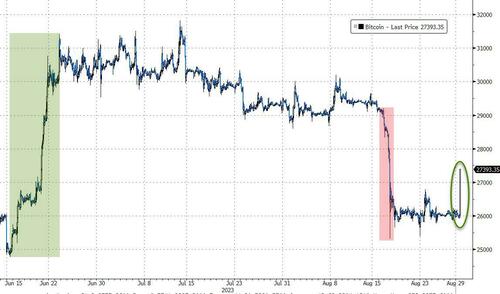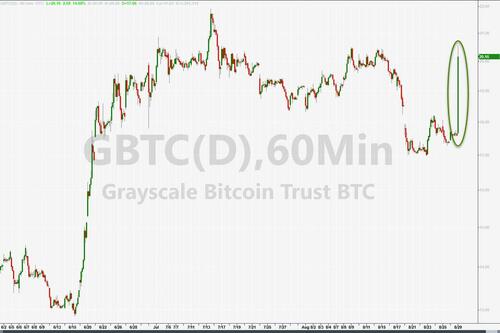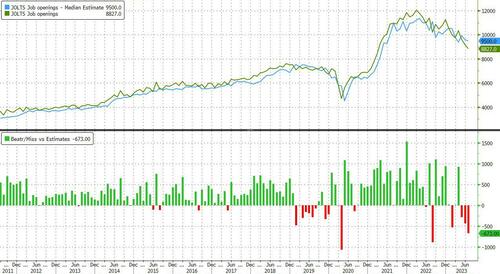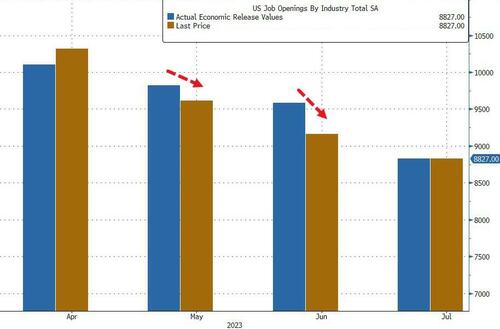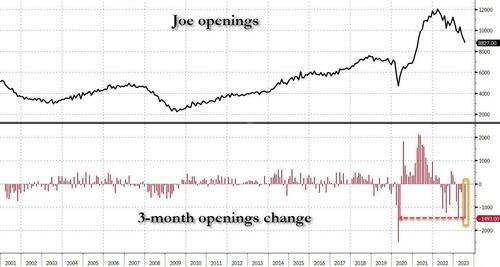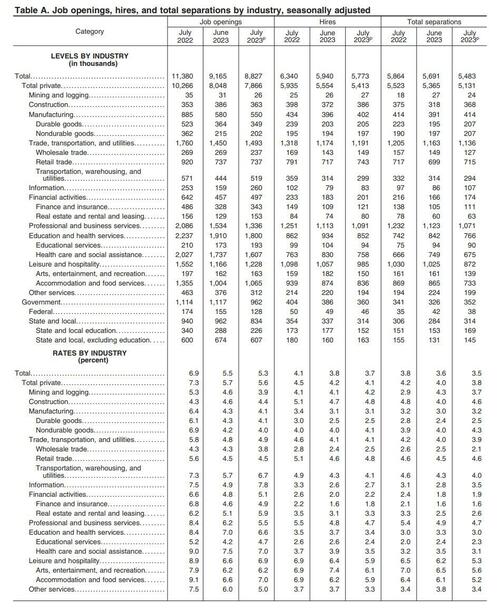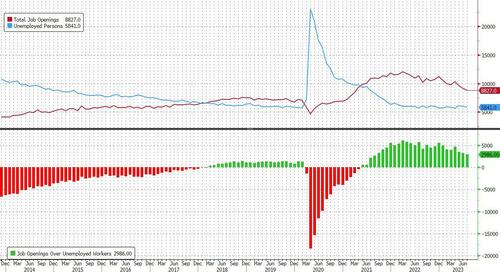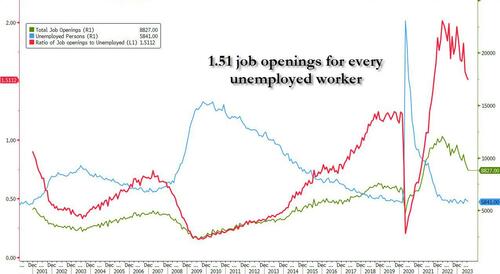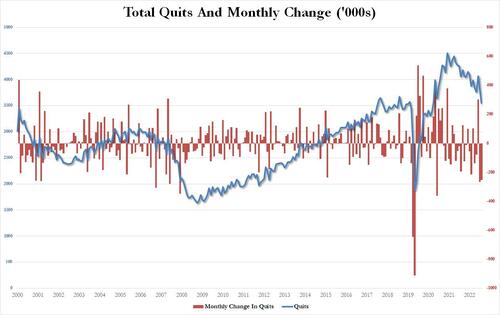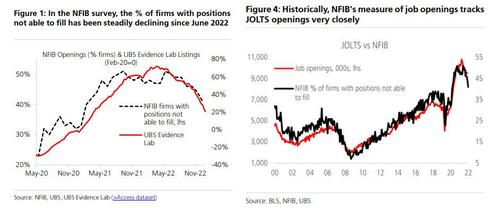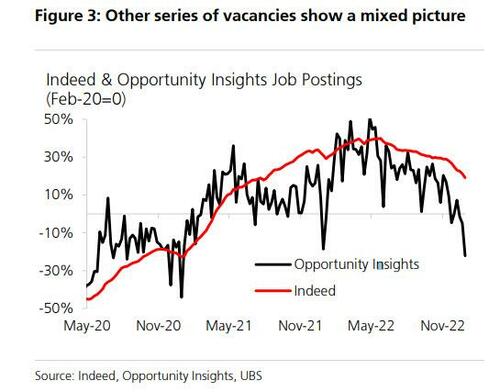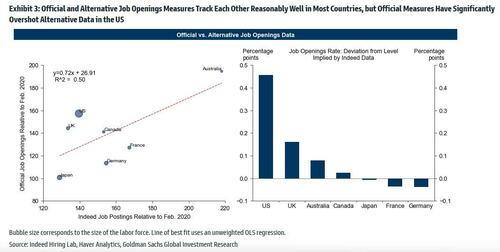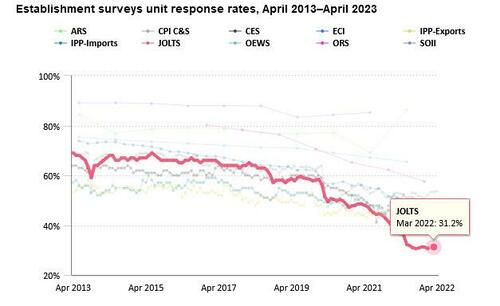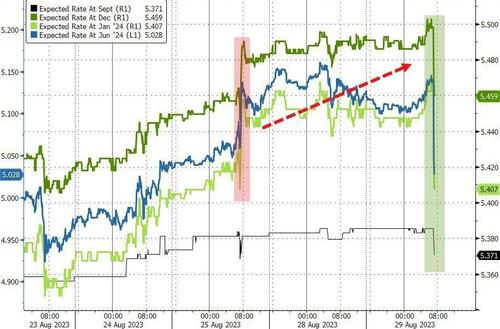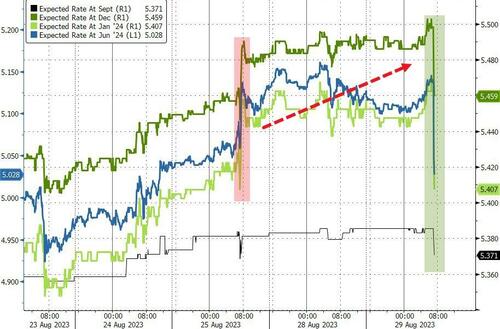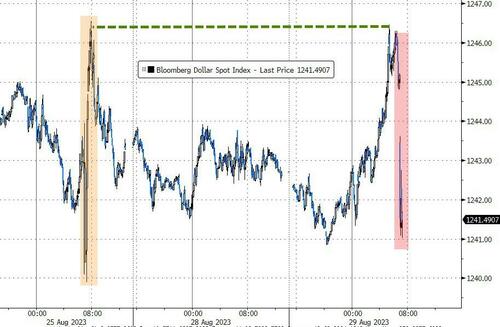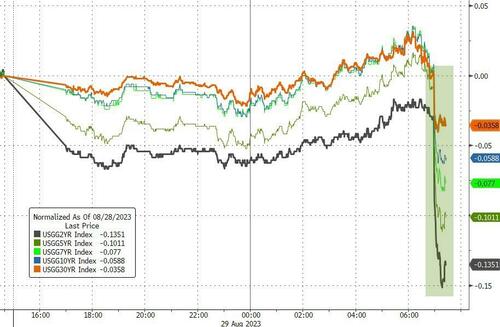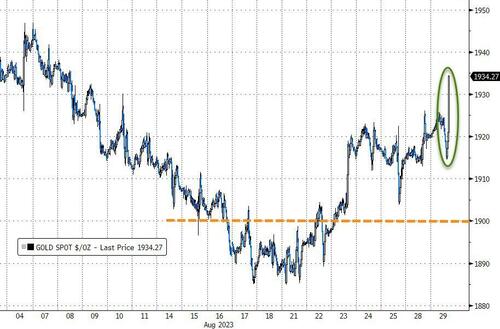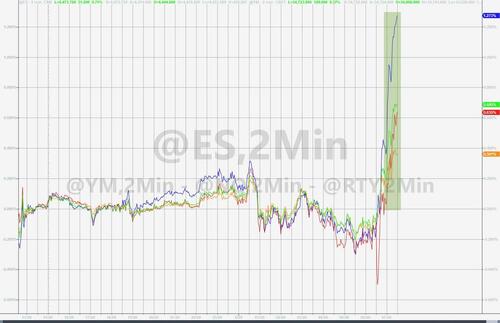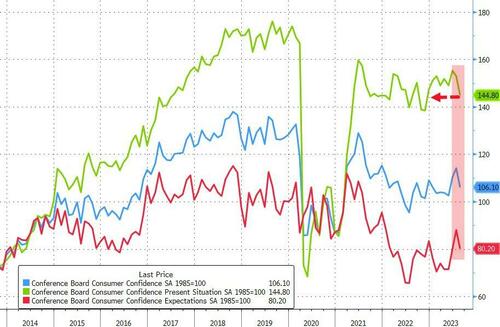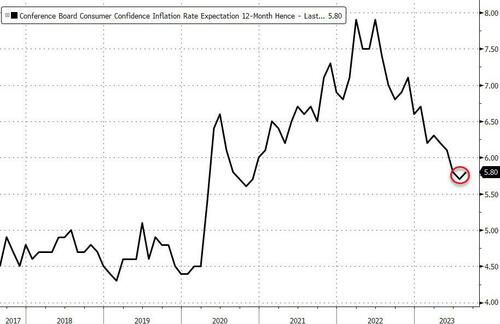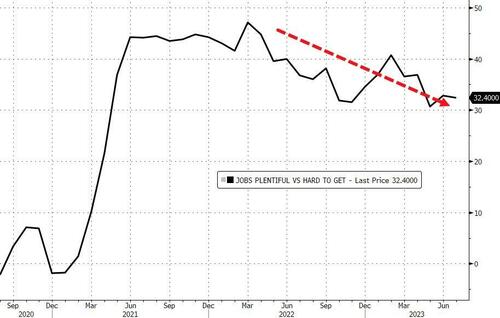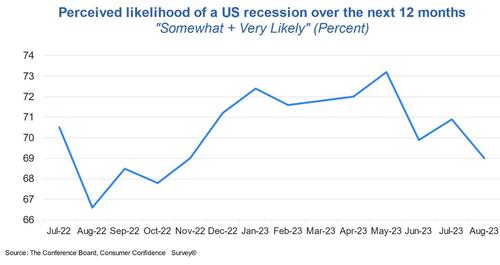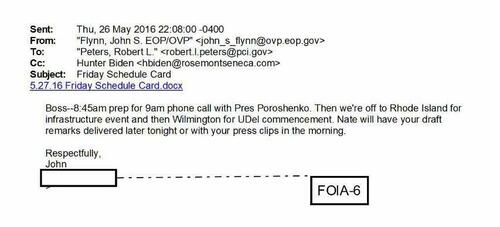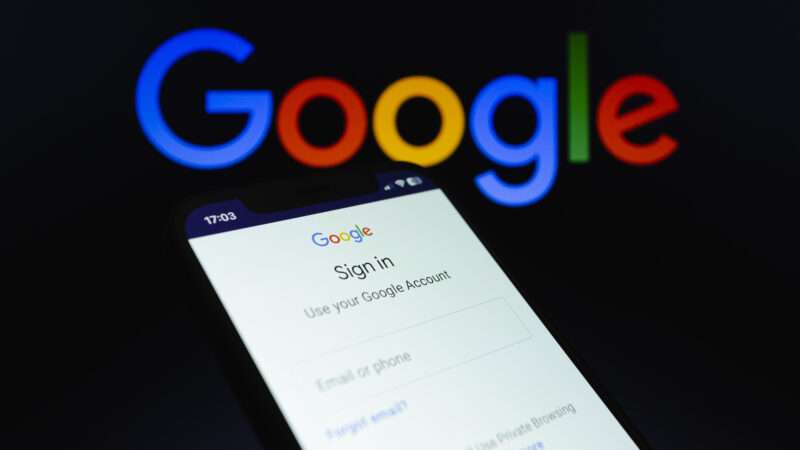Ten Reasons To Doubt The Possibility Of A “Soft Landing”
Authored by Michael Maharrey via SchiffGold.com,
There is a growing consensus that the Federal Reserve can slay price inflation while guiding the economy to a “soft landing.” In fact, Fed economists now project the US economy will not spin into a recession. Other mainstream pundits and prognosticators have taken up this narrative. But there are plenty of reasons to doubt it.
Folks who are sanguine about the economy rely primarily on three metrics. First, we saw relatively strong GTP growth in the second quarter and the Atlanta Fed recently upped its Q3 GDP estimate to 5.9%. Second, the official labor market numbers continue to reflect strong job growth. And finally, despite rising interest rates and sticky price inflation, consumers have continued to spend money.
We can certainly question the veracity of some of this data, but even taking these three metrics at face value, there are plenty of reasons to believe the economy is quickly spiraling toward a recession. Consumers and businesses are being stretched to the limit by a combination of enormous debts, rising interest rates and persistent price inflation.
Here are 10 reasons to doubt the soft landing narrative.
-
Excess savings are running out. One of the reasons consumers have been able to keep up with price inflation is the fact that they piled up a lot of excess savings during the pandemic year. But that savings is nearly gone. Aggregate savings peaked at $2.1 trillion in August 2021. As of June, the San Francisco Fed estimated that aggregate savings had dropped to $190 billion. In other words, Americans have blown through $1.9 trillion in savings in just two years. At this pace, all of the excess savings Americans accumulated will be gone sometime during the third quarter.
-
Consumers are maxing out their credit cards. As Americans blew threw their savings, they turned to credit cards to make ends meet. Credit card debt rose to over $1 trillion for the first time ever in the second quarter of 2023. But there are signs consumers are close to maxing out their credit cards. In June, credit card spending suddenly fell off a cliff.
-
People are having a hard time paying their credit card bills. A combination of rising interest rates and increasing credit card balances are squeezing consumers. The number of Americans rolling credit card debt from month to month is now higher than the number of people paying their bills in full for the first time ever. Meanwhile, default and delinquency rates are rising, not only on credit cards, but also on personal loans and auto loans.
-
Student loan payments are about to resume. After enjoying a three-year break, student loan borrowers are about to pay the piper. Around 40 million Americans have outstanding student loans totaling $1.57 trillion. When payments resume, borrowers will find their finances squeezed. According to a survey, 56% of federal student loan borrowers say they will have to choose between making student loan payments and paying for necessities such as rent, bills and groceries. Moody’s estimates student loan repayment will deliver a $75 billion hit to consumption on an annual basis.
-
401k hardship loans have spiked 36% this year. In other words, Americans are dipping into their retirement savings in order to make ends meet. This reveals just how much stress consumers are feeling. And like credit card borrowing and savings, this pool of money is finite.
-
Banks are tightening lending standards. The net percentage of banks tightening lending standards has soared from -32.4 in Q3 2021, to 50.8 in Q3 of this year. The lack of available credit will almost certainly slow consumption down the road.
-
The cost of housing continues to soar. Mortgage rates have soared to the highest level in over two decades. Combined with a tight market, housing affordability has hit a nearly four-decade low. Rents have also blown through the roof.
-
The financial crisis continues to bubble under the surface. In early August, Moody’s cut the credit rating of 10 small and midsize banks. It also placed six large banks on review for potential downgrades and revised 11 more banks from a stable outlook to a negative outlook. Later in the month, S&P Global followed Moody’s lead and downgraded the credit ratings of five banks. It also lowered the outlook for several others. The Federal Reserve managed to paper over the banking crisis with a bailout program. But the growing number of banks with credit rating downgrades reveals the problem wasn’t solved.
-
Corporate defaults have surged. By the end of June, the number of corporate debt defaults in 2023 had already exceeded the total number of defaults last year. Moody’s projects that corporate defaults will continue to surge with the default rate coming in at 4.7% globally. In the worst-case scenario, defaults could rise as high as 13.7%, surpassing the number of defaults in 2008.
-
Monetary policy works with a lag. A lot of people believe in a soft landing because, despite a sharp, rapid increase in interest rates, the economy hasn’t crashed — yet. But history tells us that it takes a while for the impacts of tighter monetary policy to work their way through an economy. The Great Recession didn’t kick off until nearly two years after the last Fed rate in June 2006.
Economists Robert Murphy and Jonathan Newman pointed out the similarities between 2006-2007 and today in a recent podcast. Murphy summed it up.
In other words, all the reasons that right now they’re saying, ‘OK, we’re out of the woods. We got a soft landing,’ that was true back then as well. It wasn’t that unemployment started rising rapidly. No, they said, ‘OK, we raised rates steadily over the course of a while here. We raised them from 1% all the way up to 5.25%. We’re starting to get CPI under control. This housing bubble is starting to get a little under control. Everything seems great.’ So, my question is would it be fair to say as of late 2006 that the Fed had achieved a soft landing and gotten the housing bubble under control? Most people would say, no. They had sown the seeds for the worst crisis since the 1930s. And likewise, right now, the data are eerily similar to that, and yet everyone is running around talking about a soft landing.”
The bottom line is the US economy runs on easy money. The central bank ran three rounds of quantitative easing during the Great Recession and held interest rates at zero for nearly a decade. The Fed doubled down during the pandemic. That led to massive levels of debt and all kinds of distortions in the economy, along with surging price inflation. The Federal Reserve has now taken some of that easy money away. There is no reason to think that the economy can just keep “plugging along” in this (relatively) high interest rate environment.
Things might seem OK now, but things tend to happen slowly and then all at once.
Tyler Durden
Tue, 08/29/2023 – 11:00
via ZeroHedge News https://ift.tt/m9OHdtU Tyler Durden


 JUST IN
JUST IN 